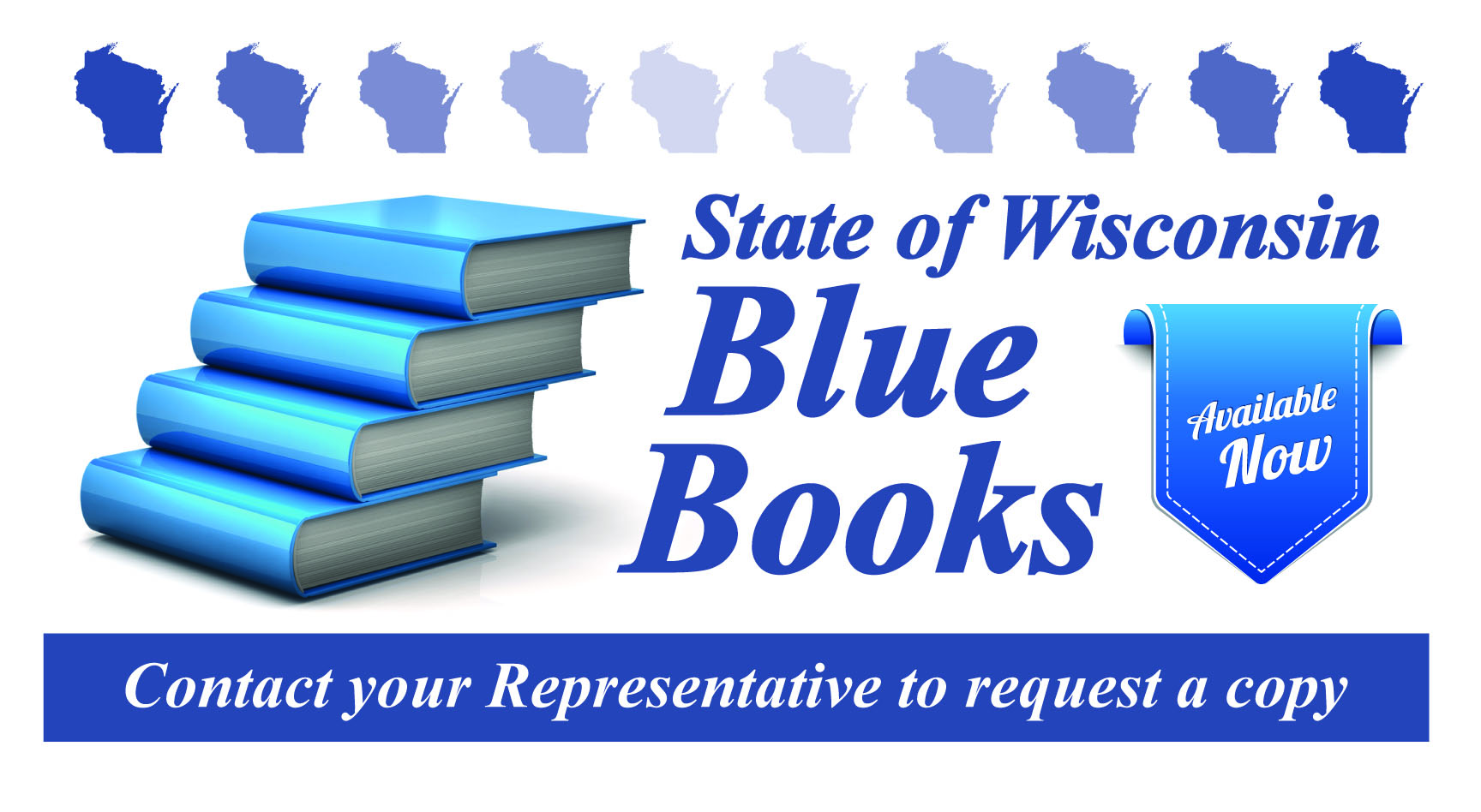
December 19, 2017
|
Merry Christmas and
Happy New Year |
|
From my family to yours, I wish all of you a very Merry Christmas and Happy New Year. It is an honor to serve as your voice in the Wisconsin State Assembly. Have a safe and joyous Christmas season.
Elimination of the state property tax levy For the first time since 1931, Wisconsin tax bills will no longer contain the state portion of the property tax levy, as the 2017-19 biennial budget eliminated this burdensome tax. According to Governor Walker, "For the first time since 1931, the people of Wisconsin will pay $0 for the state portion of their property taxes. We believe you know how to spend your own hard-earned money much better than the government. As such, the legislature removed the property tax for all families, senior citizens, hardworking taxpayers, farmers, and business owners, to help them grow their finances and bolster Wisconsin's economy." The 2017-19 state budget eliminated the state property tax levy. As a result of this and other property tax reform, property taxes on the typical home will be lower in 2018 than in 2010, and Wisconsin's property tax burden as a percentage of personal income is at its lowest level since the end of World War II. 2017-18 Wisconsin State Blue Book My office still has an abundance of 2017-18 Wisconsin State Blue Books available. If you are interested in receiving a copy of this publication, please contact my office. Published biennially since 1853, the Wisconsin State Blue Book is the oldest publication in Wisconsin. Initially, the Wisconsin State Blue Book served as a manual for the State Assembly, a pocket-size volume of less than one-hundred pages, and designed for legislators to have information about state government at their fingertips. According to the Wisconsin Legislative Reference Bureau, the principal authors of this venerable publication, "Over the decades, the Blue Book evolved in size, scope, and purpose. The Blue Book's many iterations were caused by the increased availability of information about state government and the public." By 2015, the Blue Book exceeded one-thousand pages and was laden with dense statistical information that history buffs and political junkies would find engrossing; every day citizens, conversely, would find this information uninteresting. The newly-revised State of Wisconsin Blue Book is designed to provide non-political junkies with enthralling content about Wisconsin history and government. Recognizing that the Blue Book was becoming too lengthy and dense, the Wisconsin Legislative Reference Bureau undertook a Herculean effort: revamping this esteemed repository of information about Wisconsin and its history. The 2017-18 State of Wisconsin Blue Book is intended to serve as an introduction to state and local government, not the primary source for information regarding these entities. More substantive and timely information about state government can be accessed through the Internet than could ever be accessed by a team of researchers tasked with penning a book. Recognizing this, the 2017-18 State of Wisconsin Blue Book contains biographies of legislators, descriptions of executive and judicial agencies, and statistics pertaining to Wisconsin government and elections. It does not, however, reproduce information that is archaic, or can be easily obtained and accurately elsewhere. As denoted earlier, if you are interested in obtaining a copy of the 2017-18 State of Wisconsin Blue Book, please contact my office with your name and address. My staff and I will make it a priority to ensure that your copy arrives in a timely manner.
Investing in education The 2017-19 biennial budget is a win-win for educators, school districts, parents, and, most importantly, the nearly 900,000 students who attend taxpayer-funded institutions of learning, in Wisconsin. Those who followed the state budget negotiations are familiar with the $600 million increase in spending for public schools. Equally important as investing in our children--the future of Wisconsin's workforce--is ensuring that educators receive adequate compensation for the outstanding work they do in preparing our children for success in our ever-changing, twenty-first century economy. Recognizing that Wisconsin is suffering from a teacher shortage, the 2017-19 biennial budget invests in our world-class educators by establishing a Teacher Development program designed to help teacher's aides obtain a bachelor's degree and/or teaching license. These individuals possess real-world classroom experience and, in many instances, aspire to serve as a licensed educator. As part of the Teacher Development Program, school districts will partner with institutions of higher learning to help aspiring educators obtain their bachelor's degree without sacrificing valuable classroom training time. Additionally, the budget contains tuition assistance for individuals striving to become educators. Minnesota instituted a similar program last session, and has witnessed an influx of new educators from diverse backgrounds, in classrooms throughout the state. Rural school districts, as one might expect, have difficulty attracting and retaining first-rate educators. In an attempt to remedy the exorbitant educator shortage in our rural school districts, the budget establishes a program that places college students training to become educators in rural schools. Not only will future educators gain valuable classroom experience earlier in their academic career, the program will expose new educators to the positive aspects of providing educational instruction in rural, tight-knit Wisconsin communities. Lastly, the budget provides much-needed relief for current educators by simplifying the licensure process. Prior to passage of the 2017-19 budget, educators were required to complete an onerous five-year program, every five-years, of professional development and additional coursework, to maintain their teaching license. This regiment required educators to pen a lengthy, time-consuming professional growth and development plan. Furthermore, educators were simultaneously being evaluated under the Educator Effectiveness Program. Rather than subjecting educators to two onerous evaluation programs, the budget reinstated lifetime educator licenses and utilizes the Educator Effectiveness program--one that uses principals and superintendents, not Madison bureaucrats--to evaluate educators. These changes will allow educators to spend more time doing what they do best: educating the children of Wisconsin. It is imperative to denote that the budget did not eliminate the state's teacher shortage. That said, however, when coupled with historic investment in education, the budget takes an important step towards addressing the educator shortage issue, while simultaneously rewarding the "best and brightest" educators. Despite increased funding for education and addressing the educator shortage, there is still more work to do. My colleagues and I will continue to work diligently to ensure that every child has the opportunity to obtain a first-rate education. |
|
Have a great week,
Stay up to date One of the best ways to stay up to date with what is happening in Madison is to sign up for the legislature's notification tracking service. This service affords you with the opportunity to track legislative activities in Madison. Upon creation of a free account, you can sign up to receive notifications about specific bills or committees as well as legislative activity pertaining to a subject area (i.e. real estate, education, health). You can sign up for this service at any time. You can also follow me on
Facebook and
Twitter to see what
I have been doing in Madison and around the 60th Assembly
District.
Please recommend the page to your friends and family members.
|
If you would like to be removed from future mailings, email me to unsubscribe.
State Capitol Room 309 North-PO Box 8952, Madison, WI 53708
(608) 267-2369
Email: Rep.Rob.Brooks@legis.Wisconsin.gov



